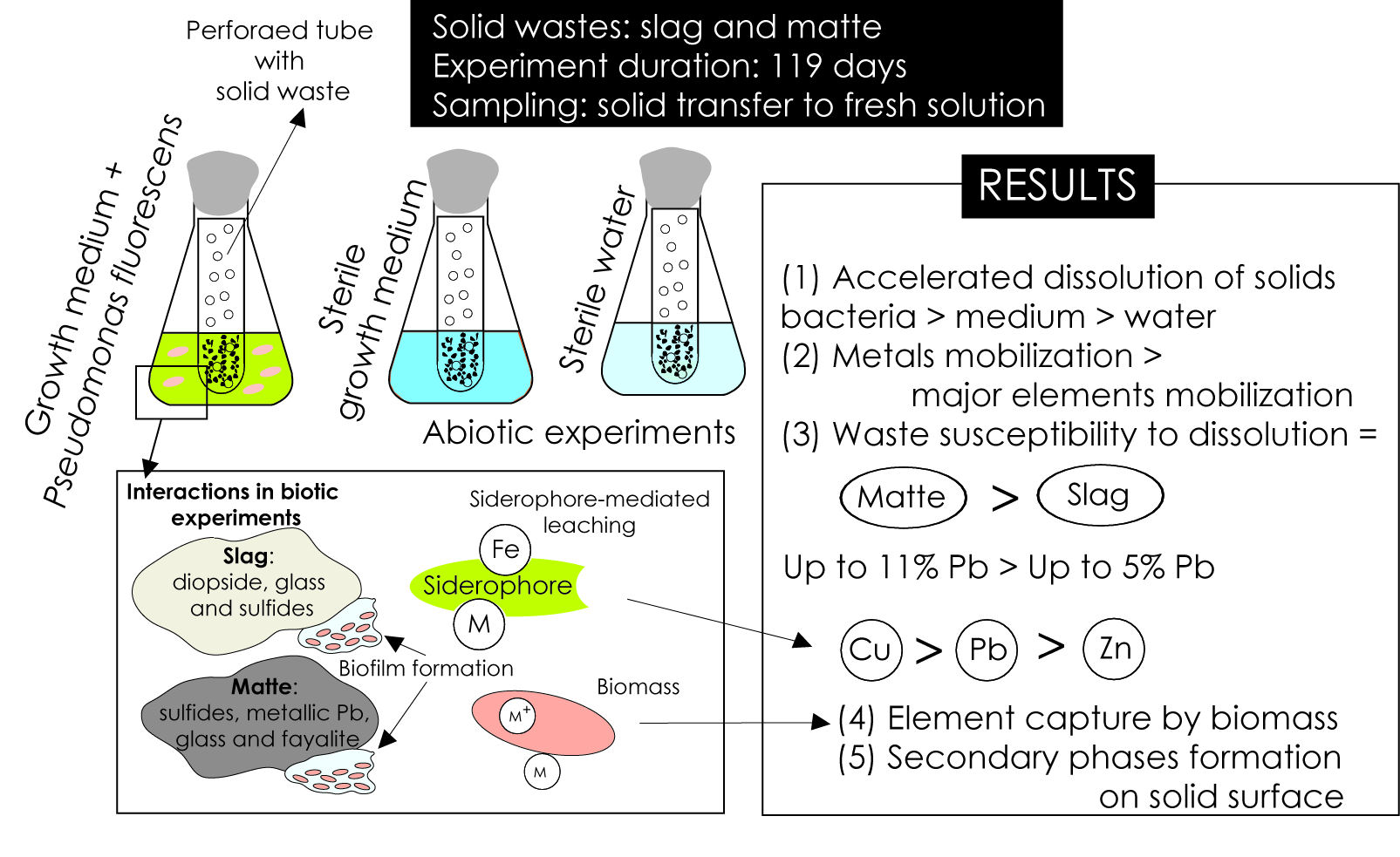Bacteria and the release of potentially toxic elements

Weathering processes are also associated with specific behaviors of bacteria. An example is the bacterium Pseudononas fluorescens, which, under weathering conditions, participates in the release of metallic elements and the formation of secondary minerals.
This bacterium has the ability to secrete so-called siderophores, compounds with a high affinity for iron. To understand the mechanisms of behavior of Pseudononas fluorescens, its effects were analyzed under simulated bioleaching conditions of slag. As a result, this bacterium released elements such as copper, lead, and zinc from the source material.
The described research indicates that bacteria serve as catalysts in weathering processes, influencing the increased release of potentially toxic elements. This property can, on one hand, have negative environmental consequences, but on the other hand, it can also be used for the development of phytoremediation techniques in waste disposal sites and for optimizing biohydrometallurgical technologies for resource recovery (metals). The research results, fitting into the context of a closed-loop economy, have allowed for the identification of optimal parameters for recovering elements from industrial waste and estimating the economic potential of the process.
Dr. Anna Potysz – an assistant professor in the Department of Experimental Petrology at the Institute, is scientifically involved in environmental geology and geomicrobiology. Her research interests focus, among other things, on slag studies, the circulation of metals in nature, and the impact of the environment on the occurrence and behavior of bacteria. She is the laureate of the Geology competition under the patronage of the Minister of Climate and Environment in the category of “Young Geologists and their research achievements” and the head of two research projects of the National Science Center. Outside the Institute, she serves as the Vice Chairman of the Academy of Young Scholars and Artists under the Mayor of Wrocław.
More information about the article:
